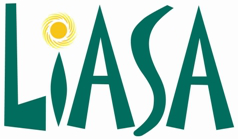Speaker
Mr
Daniel Mosako
(Univerity of Pretoria)
Description
Abstract:
Transforming information services for the future
This paper presents a critical reflection of selected Information Communication Technology (ICT) transformation and implementation challenges in heritage museums as information service centres.
Information centres throughout the world, including heritage museums, libraries, and tourism spaces collect, organize and disseminate information and knowledge to different user groups. However, heritage museum also collect objects of art and other artefacts that are archived for different purposes. These purposes include aesthetic appearance, historical value, social significance, and information service.
Nationally and internationally, libraries have been perceived as having evolved from mere hard copy reference venues to generators of electronic indexes, providers of digital knowledge, and distributors of diverse types of information. The same evolution is also evident with international heritage museums, which are constantly redefining themselves to serve and attract new audiences. This redefined heritage museum focuses on widening access to heritage collections images and archived information through Internet searching, servicing researchers and scholars from a wide range of disciplines.
ICTs offer the opportunity to heritage museums to become more inclusive and competitive in the global information society, and to fulfill a role in transforming information service for the future.
It is evident that the advent of the Internet and other information technology applications of the new millennium prompt a critical re-evaluation of heritage museum research and information-sharing services for the future. Subsequently triggering an avalanche, for ICTs to become an integral component of the digital policies of most heritage museums and allowing them to satisfy the demand for On-line information-sharing.
However, it should be noted that the demands for on-line information access in heritage museums are not without negative attitudes, and technical challenges. ICT challenges in heritage museums include misconceptions that: computers and other new-media information equipment will replace heritage museum staff; curators will not feed computers with key information as a result of staff resistance; anxieties from some staff and end-users, and advanced information service demands and expectations from others, underscore the need to transform attitude. The lack of skills and the problems of hacking and viruses present technical problems. It is clear from this brief challenges then that an investigation into ICT transformation and information service challenges in heritage museums is warranted.
On the other hand ICTs have proven to be of importance with regard to the use of customized technological services and known applications such as e-health, e-government and e-commerce. As far as information service in heritage museums is concerned, there could be regular e-newsletter circulations aimed at updating heritage museum end-users about heritage museum activities, and the acquisitions of new artefacts and archival documents. Information societies continue to advance the exposure of ICT across the globe, with the use of TVs, radios, cell phones, e-global market reports gaining popularity day-by-day. Such developments also help to convert information poverty into information opportunities.
Heritage museums, like all other information centres, are expected to compete globally, and likewise are compelled to disseminate information digitally, and the general public sector in developing countries has experienced an increased recognition of the importance of ICTs to inform communities, and stimulating the need to learn as a fundamental service.
Primary author
Mr
Daniel Mosako
(Univerity of Pretoria)

